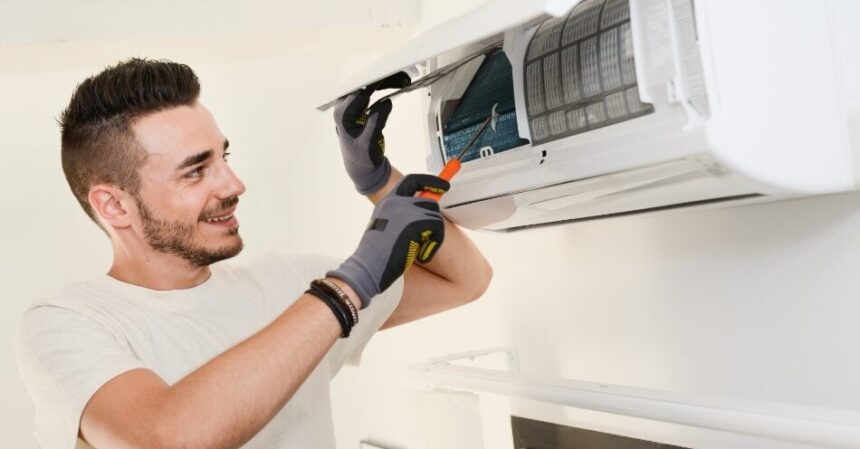Air conditioning offers comfort in hot summers, which is the relief everyone looks for in sweltering heat. However, essential devices like air conditioners wear out with continuous use or get damaged. Choosing whether to repair or replace an air conditioner can be tricky. This post will help homeowners decide whether to replace their air conditioners.
Signs of Inefficiency
The most prominent signs of an old air conditioning unit malfunctioning are minimal effectiveness and inconsistent cooling. A unit that is ten years or older may not cool your space as well as it used to. Increased energy bills usually accompany this decline in performance. If you notice that cooling costs are rising, but your usage patterns have not changed, that can be a sign that the system may need to be replaced. Furthermore, constant repairs may indicate inefficiency. If an air conditioner constantly needs upkeep, the costs can add up. Getting a new one might be more financially reasonable. In such cases, contacting reputable names like Cincinnati Air Conditioner Replacement Service is a wise choice.
Inconsistent Cooling
Sometimes, homes experience varying degrees of heat and have different cooling needs at various times of the day or night. When air conditioners malfunction, they struggle to keep rooms cool based on specific needs. Sometimes, they are incapable of handling extensive usage or varying cooling requirements. A professional can help identify the problem and recommend replacement based on their analysis.
Unusual Noises and Odors
Sounds that seem out of the ordinary could indicate trouble in your air conditioner. Sometimes, you might notice new problems every other day. Noises such as clanking, grinding, or squealing usually signal mechanical issues. If ignored, the damage can turn serious. Similarly, unpleasant smells coming from the unit may indicate the presence of mold or burnt wires. By promptly addressing such issues, you can ensure safety and comfort.
Age of the Unit
When it comes to replacement, age is a key consideration. Most air conditioners last 10 to 15 years. The older the systems, the less efficient they are and the higher the chances of breakdowns. When units reach and exceed this age, replacement becomes more reasonable.
Energy Efficiency Ratings
New air conditioners are more energy efficient than older ones. New systems are often rated better and use less energy, which saves money. Replacing the unit with a more efficient system can result in significant savings over the long run.
Eco-Friendly Systems
Consumer choices are increasingly based on environmental impact. Many older systems use harmful refrigerants. Switching to a new system with environmentally friendly refrigerants can make a home greener. An upgraded unit ensures that you can still enjoy an inviting space to come home to while doing your part to support the sustainability of our planet.
Technological Advancements
New technology is an excellent reason to replace your old air conditioner. These days, air conditioners can be operated using smartphones or simple voice commands. These features increase convenience and can lead to incremental energy savings.
Budgetary Considerations
The budget often impacts decisions about replacements. While a new air conditioner typically means a high up-front price, the energy bill and repair cost savings over time can more than cover this initial outlay. Compare the long-term costs of keeping an aging unit to buying a new one to make an informed decision.
Consulting Professionals
When ambiguity kicks in, experts can provide some clarity. Heating, Ventilation, and Air Conditioning (HVAC) technicians know how to determine if an existing unit is still functional and what the next steps should be. With their professional advice, homeowners can make informed and realistic choices.
Conclusion
Several aspects must be considered when deciding whether to retire an air conditioner. When to replace the unit comes down to recognizing inefficiency, inconsistent cooling issues, or unusual sounds. The age of the unit also matters. Exploring energy efficiency, environmental impact, and technology can help make a well-informed decision. Professional consultation offers comfort and peace of mind. By considering these factors, homeowners can be better prepared to make suitable decisions.






